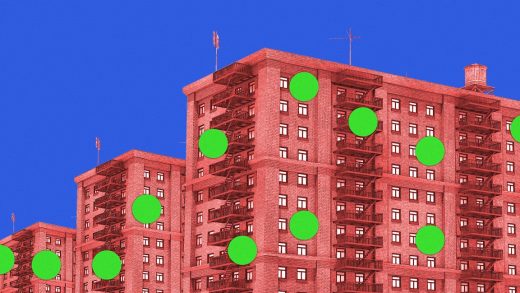Airbnb wants to ban listings of apartments freed up by post-moratorium evictions
Airbnb announced Tuesday that it will collaborate with cities to ban landlords from listing any property where the tenant was evicted due to nonpayment of rent, and where that tenant had been protected by the CDC moratorium.
Called the COVID-19 Renter Protection Policy, this new Airbnb policy will be in place until the end of the year, at which point the company will review it, get input from cities, and decide whether to extend it. Airbnb needs the participation of cities in order to prevent landlords from turning pandemic-evicted units into short-term rentals. The platform says it will ban such listings “when a city notifies us” that those listings are located at rental properties that fit the policy’s requirements.
“By working with cities to prevent landlords from using our marketplace to profit from removing a vulnerable long-term tenant from their home based on nonpayment of rent, we believe we can send a strong message that will help keep people in their homes at this critical time,” the company said in a blog post.
More than 11 million Americans are behind on their rent, according to a recent analysis, and the end of the national eviction moratorium could mean an “avalanche” of evictions that would create a housing disaster on top of the affordable housing crisis many cities are already facing. In some instances, Airbnb has been blamed for flaming that affordability crisis; a 2018 report by the Office of the New York City Comptroller found that the short-term rental platform contributed to city rent increases of 9.2% between 2009 and 2016 (Airbnb denied the findings, taking issue with the methodology).
Preventing landlords from using these forthcoming evictions to create more Airbnb units may be difficult because there’s often not a way for cities to report or review pandemic-related evictions. The company told The Washington Post it’s addressing this “through a new portal it built to enable governments to manage short-term-rental policies.”
Airbnb named Andrew Kalloch, current senior policy development manager at the company, as head of COVID-19 Housing Policy to coordinate the renter protection initiative. Kalloch will “engage cities on implementing” the policy over the coming weeks, according to the company.
“Since our start in 2007, when two of our cofounders put air mattresses on their living room floor to earn money to make their rent, Airbnb has always been a platform dedicated to helping people stay in their homes and reap the benefits of home sharing,” the company said in its blog. “This commitment has never been stronger than today in the aftermath of the COVID-19 pandemic—and it is why we are doing our part to disincentivize evictions, in collaboration with cities nationwide.”
(29)



